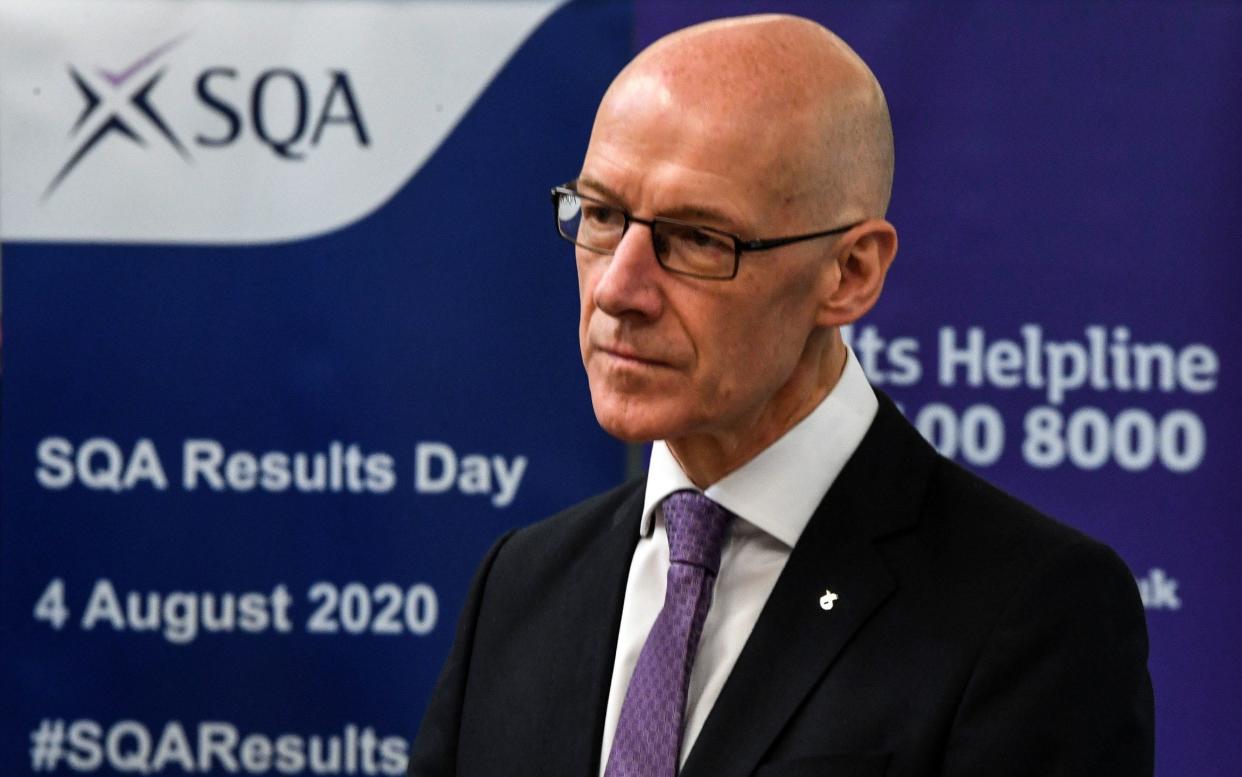School closures mean crisis is looming over award of national qualifications, expert warns

There is an “emerging crisis” over the award of qualifications to Scottish teenagers this year, a leading education expert has warned.
Professor Lindsay Paterson, professor of education policy at the University of Edinburgh, said that teachers had been left in the dark about how to grade pupils, with schools closed since the Christmas holidays and no guarantees over then they will return.
Traditional exams have been scrapped this year, with teachers instead told that pupils would be graded based on coursework and their own judgement.
However, Prof Paterson said the Scottish Qualifications Authority had offered “no serious advice to teachers” about how this could be achieved with schools shut.
We've known for nearly a year that this situation was coming, so what the hell has the SQA - which describes itself as being "The heart of Scotland’s world-renowned education system" - being doing?
— James McEnaney (@MrMcEnaney) January 25, 2021
“There is a real emerging crisis here,” he said. “Teachers are in the dark about what criteria to use and what kinds of assessments to use, to form the basis of their predictions of students' results.
“You can't get people at home to do assessment under the same conditions that would normally apply to an exam and that is why the SQA has to be giving practical, useful advice.”
He said teachers would be able to make an “informed estimate” about pupil grades, but that the “key problem” would be ensuring consistency across the country.
Nicola Sturgeon has said there are no plans to require older pupils to resit a year, although the Scottish Government has not denied that the option had been discussed as a last resort, due to the problems around flagship National 5 and Higher awards.
However, Prof Paterson said such a solution would cause major practical problems, as well as being likely to provoke deep resentment among pupils.
He also said he believed half of school pupils are being failed by online teaching arrangements.
The claim was based on a Sutton Trust report, which included a survey from parents across the UK.
It was found that fewer than one in five primary pupils, and 47 per cent of secondary age children, were being provided with at least three hours of live or recorded lessons each day.
Schools in Scotland will remain closed until at least mid-February, although they are unlikely to reopen in full next month.
The youngest primary pupils and oldest secondary pupils are likely to be able to return first, under plans to reopen schools on a “phased” basis.
John Swinney, the education secretary, said he was “encouraged” to hear Mr Paterson’s view that the delivery of remote learning had improved compared to last year’s lockdown, when schools were shut between March and August.
“I think it’s a fair reflection of the superb efforts being made by our teaching profession,” he said. “Our educators are doing everything they possibly can do to make sure the needs of children are being adequately met.”

